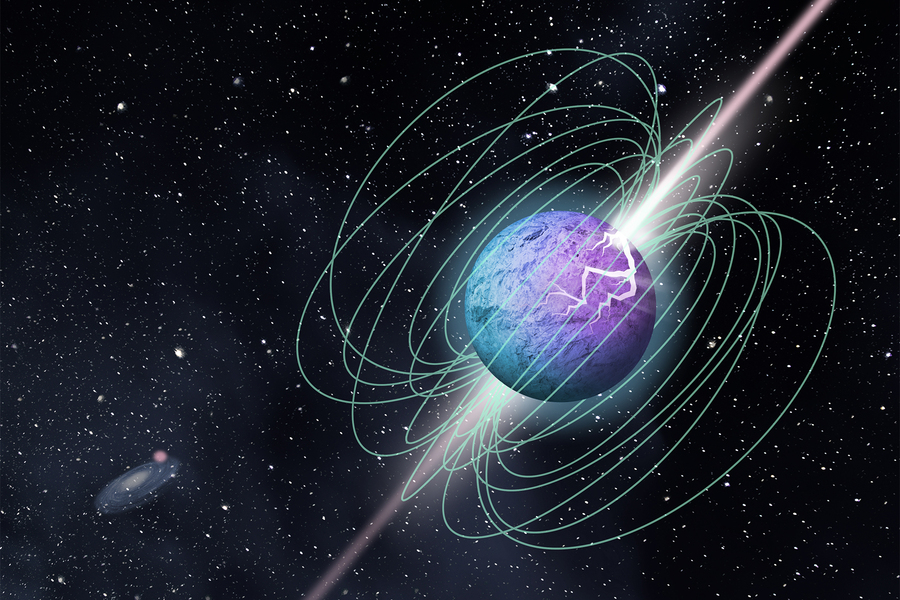
The first observation of a fast radio burst (FRB) inside the galaxy was late in April. This time, a research paper on this cause was published in the journal Nature.
FRB is a phenomenon in which strong radio waves occur for a short period of time at millisecond intervals. Until now, it has been observed to occur in very distant galaxies, not in galaxies, and its cause is not known at all. What the research team has thought of as the cause of FRB is a neutron star that remains after a huge star exploded with a supernova.
A team of astronomers, including MIT, McGill, British Columbia, and the University of Toronto, observed a series of FRBs using the Canadian Hydrogen Intensity Mapping Experiment (CHIME) radio telescope at the British Columbia Radio Observatory in Canada. Through this, we confirmed that it started from SGR 1935 + 2154, one of the common magnetas located 30,000 light-years from Earth.
As the source appeared to be magneta, the research team faced a new task as to why magneta gave off FRB. Most of the cosmic radio waves generate powerful radio waves through supermassive black holes, supernova remnants, and hot gases in galaxies. However, the research team is suspicious of the possibility that magneta is generating powerful radio waves in a completely different process.
FRB does not occur because electrons randomly interact with a magnetic field, but in large quantities anyway. It is hypothesized that there is a possibility that certain phenomena, such as an antenna that directs electrons in a specific direction by an electric wire, may be acting on the magneta magnetic field at once. However, new observations will be needed to confirm this. The research team now reveals that the important thing is to conduct in-depth research on this source to find out how FRB is made. Related information can be found here .


















Add comment